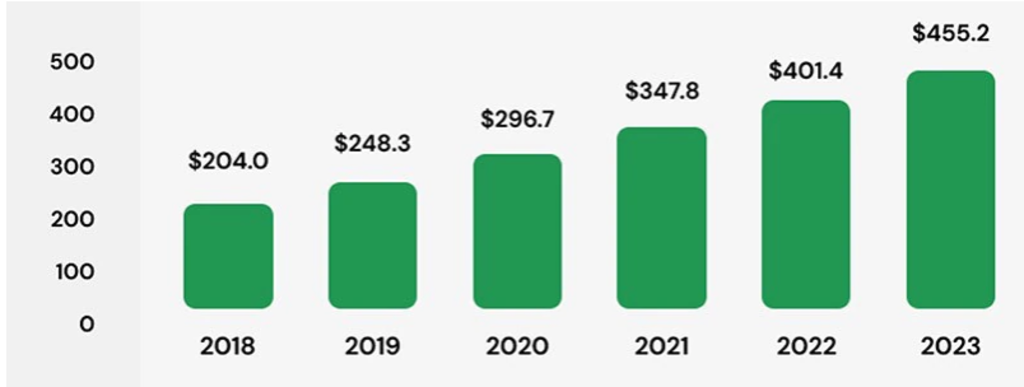The gig economy is a term used to describe millions of workers who do not have fixed-term contracts guaranteeing certain rights, such as paid holidays, pension provision or health care.
It includes workers such as delivery drivers who are not salaried but paid by the hour, along with freelancers who do not work directly for their employer.
The gig economy does though offer many advantages to those who prefer to work on a freelance basis or part-time, or have lifestyles that embrace a greater flexibility of working arrangements. Much of its growth has been caused by the rise of e-commerce and online delivery, along with apps that can book taxi rides or other services at short notice.
The size of the global gig economy has grown from around USD 200 billion in 2018 to USD 350 billion in 2021 and will grow further to about USD 450 billion in 2023, according to one study. About 58% of workers are in transport-based services such as delivery drivers, while about 30% are involved with asset-sharing services such as AirBnB. Professional services such as working freelance for tech or media companies account for about 4%.1
The estimated size of the global gig economy

Source: Brodmin.
The use of the gig economy grew extensively during the Covid-19 pandemic, due to a double whammy effect in which the number of salaried staff fell as people were laid off from vulnerable professions such as hospitality, while reliance on home deliveries increased. It has led to greater vulnerability of workers without rights enjoyed by others, despite many having demanding jobs.
To tackle some of the downsides, in 2021 Robeco’s Active Ownership team began an engagement program with eight companies in the retail and hospitality sectors and the wider ‘gig economy’ in Europe, North America and Asia. The team’s priorities will relate to seeking decent work and fundamental workers’ rights, such as social dialogue, wages and benefits and occupational health and safety.























